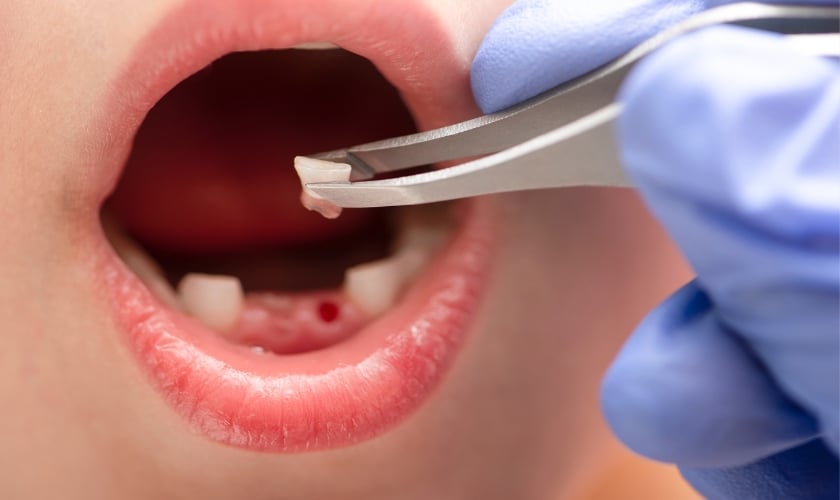-
852 Madurdaha, EKT, Kolkata 700107
852 Madurdaha, EKT, Kolkata 700107

A dental extraction, or “tooth extraction,” is a procedure to remove a tooth from its socket in the jawbone, often performed due to severe decay, infection, or other oral health issues.
Here’s a more detailed explanation:
Reasons for Extraction:
• Severe Tooth Decay:
When a tooth is damaged beyond repair by decay, extraction may be necessary.
• Infection:
If a tooth is severely infected, extraction might be the only way to eliminate the infection.
• Gum Disease (Periodontal Disease):
Advanced gum disease can cause teeth to loosen and become unstable, leading to extraction.
• Crowded Teeth:
In some cases, teeth may be removed to create space for other teeth to align properly during orthodontic treatment.


• Impacted Teeth:
Teeth that are trapped beneath the gumline or bone, like wisdom teeth, may need to be extracted.
• Damaged Teeth:
If a tooth is severely broken or damaged and cannot be repaired, extraction might be the best option.
Types of Extractions:
• Simple Extraction: Involves removing a tooth that is fully erupted and accessible.
• Surgical Extraction: More complex procedures that may involve cutting the gum tissue or removing bone to access the tooth.
Procedure:
• Anesthesia:
Local anesthesia is commonly used to numb the area around the tooth, but general anesthesia or intravenous sedation may be used for more complex extractions.
• Loosening the Tooth:
The dentist uses specialized instruments to loosen the tooth from its socket.
• Extraction:
The tooth is then carefully removed with forceps.
• Aftercare:
After the extraction, you will be given a gauze pad to bite on to help control bleeding and allow the clot to form in the socket.
Post-Extraction Care:
• Pain Management:
Over-the-counter or prescription pain medication may be prescribed to manage pain.
• Bleeding Control:
Biting on the gauze pad, avoiding strenuous activity, and refraining from rinsing or spitting forcefully can help control bleeding.
• Infection Prevention:
Maintaining good oral hygiene by gently brushing and avoiding smoking can help prevent infection.
• Diet:
Soft foods are recommended for the first few days after extraction.
• Healing:
The extraction site will typically heal within a few days to a week, but the complete healing process can take several weeks.
852 Madurdaha, EKT, Kolkata 700107
Tue-Sat : 9.00 am- 12.00pm & 5.30pm-9pm
Sunday : 9.00 am - 12pm
Monday : Only Prior Booked